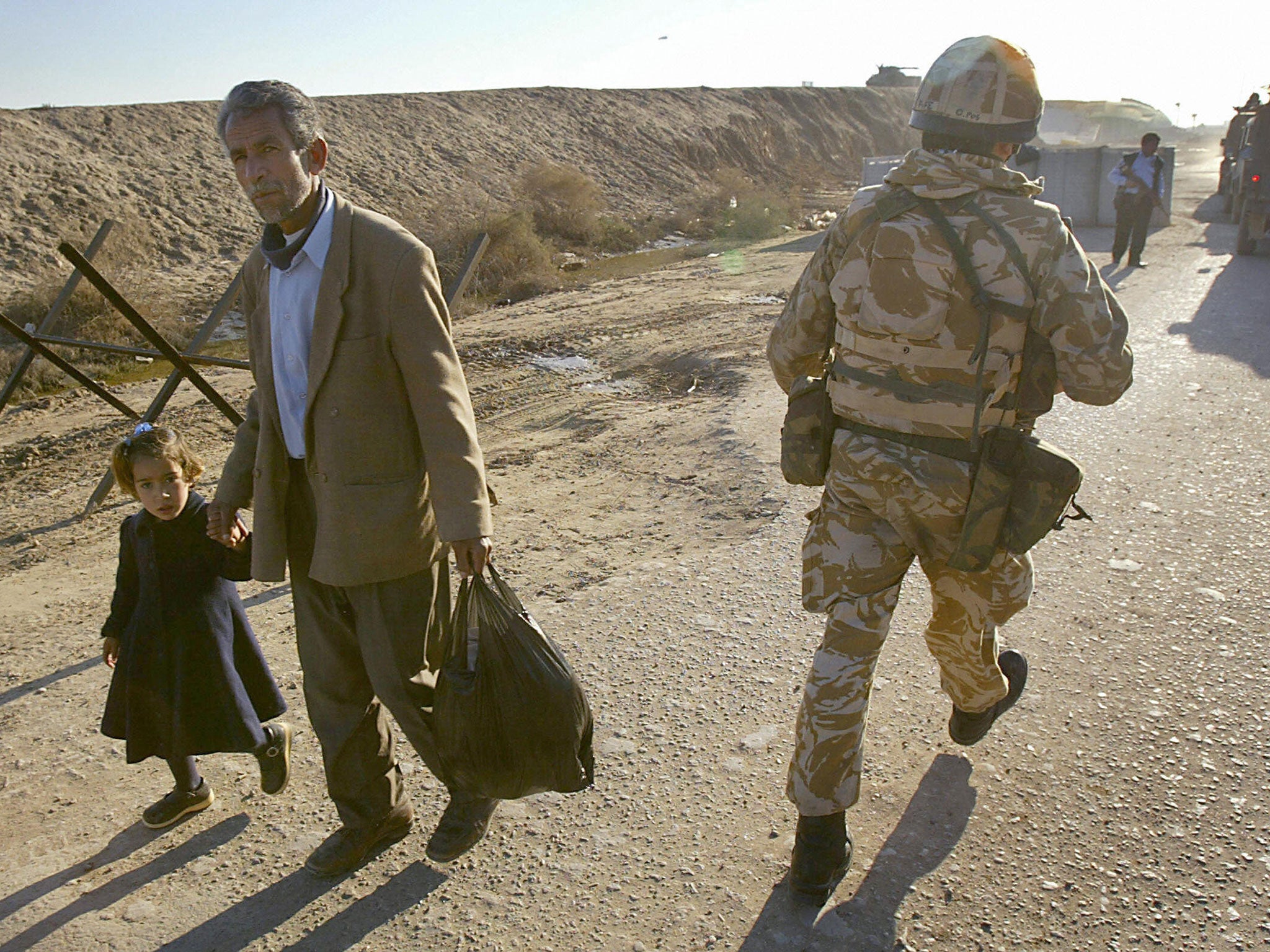No justice in sight for Iraqi victims of alleged murder, rape, and torture
Exclusive: Team investigating claims of abuse by British soldiers is years behind schedule

Victims and families of those allegedly murdered, raped or tortured by British soldiers in Iraq could be forced to wait decades before the Iraq Historic Allegations Team (Ihat) completes its work, despite officials admitting that some cases could amount to "war crimes".
The investigation team is understaffed, several years behind schedule, and will miss its target of completing its investigations by 2016, according to documents seen by The Independent on Sunday. Based on the current rate of progress, it would take almost 50 years for it to complete the cases on its books. And lawyers claim the interviewing process alone will take 18 years.
Britain is facing increasing scrutiny over alleged war crimes in Iraq – a delegation from the International Criminal Court (ICC) visited Ihat in June this year. This follows a dossier of allegations by Public Interest Lawyers (PIL) and the European Centre for Constitutional and Human Rights (ECCHR), which prompted the ICC to begin a preliminary investigation into claims of war crimes.
The investigation is behind schedule despite the Defence Secretary, Michael Fallon, approving a massive increase in Ihat's budget in July. It has increased from £33.2m to £57.2m, in a three-year extension of funding until 2019.
Since being set up by the Ministry of Defence in 2010, Ihat has completed just four investigations into allegations of unlawful death and four into allegations of mistreatment. At this rate, it would take 47 and a half years for investigations to be completed into 53 further allegations of unlawful deaths and 95 of mistreatment.
An Ihat spokesperson said: "The enormity of our task is unique, but a calculation based on the number of cases completed so far is inaccurate and misleading. It is important to highlight that these are criminal investigations and we are committed to conducting them professionally and effectively."
Yet there are just a dozen police officers dealing with cases described by Ihat as "criminal investigations" and most of its 136-strong team are civilian "investigators". Among its caseload are 15 allegations of Iraqi citizens murdered in the "custody/care of UK forces". An Ihat spokesperson said: "Of those, seven died inside a British camp. A further eight are alleged to have been killed during or shortly after contact with or being in care of British forces."
Pressure on Ihat is understood to have dramatically increased in recent months as it has been swamped by fresh allegations of men, women and children killed or abused by British forces. This second wave pushed the number of alleged "unlawful killings" to 182. And claims of "serious ill-treatment", including rape and grievous bodily harm, have reached 60. A spokesperson admitted it was investigating matters also referred to the ICC. These could amount to war crimes in the future.
Mark Warwick, a retired police officer who is the director of Ihat, said: "The task in which we are engaged is huge and very complex. It requires a thorough and methodical examination of a large amount of material – something that has been recognised by an extension of our funding until 2019." The team was "working extremely hard" and "significant progress" had been made in a number of cases in the past year, he said.
No individuals have yet been charged. Ihat acknowledged that just two cases had been referred to the Service Prosecuting Authority for a decision on whether individuals should be charged.
At the present rate, the interviewing process alone "will not be completed until 2032", according to Phil Shiner, a PIL solicitor representing Iraqi victims' families.
Carla Ferstman, director of the human rights charity Redress, said yesterday: "The Ihat process needs to significantly up its game if it is to come close to meeting the UK's obligations." She added: "Many of the alleged victims already felt the UK was not serious, which is why they asked the ICC to investigate. It seems extraordinary that the involvement of the ICC, even at a preliminary stage, has not galvanised the Government to urgently investigate and prosecute where there is evidence of criminality."
Seven British former soldiers will this week give evidence in hearings held by the former High Court judge Sir George Newman into the deaths of two Iraqi civilians in 2003. Sir George is leading the first of a series of investigations into civilian deaths during the Iraq War – after High Court judges ruled last year that a "new approach" was needed in cases where no prosecutions had been brought or where prosecutions had been discontinued.
Join our commenting forum
Join thought-provoking conversations, follow other Independent readers and see their replies
Comments